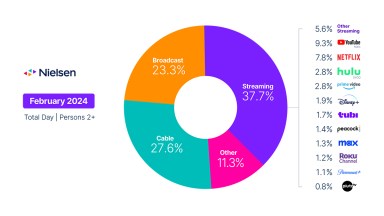America is in the midst of a demographic transition. Today, 41% of the U.S. population is racially and ethnically diverse, and people are increasingly exploring and defining their personal identities. As the U.S. diversifies, there is a unique opportunity to meet America’s expanding entertainment tastes.
The media industry has made some progress in creating a more inclusive ecosystem. In fact, across the TV landscape among the top 300 most-viewed programs in 2019 (broadcast, cable, and streaming), 92% of all programs measured have some presence of diversity (women, people of color, or LGBTQ) in the recurring cast. This increasing presence is applauded, but as we uncover in this report, presence is not the same as representation.
This report looks at aggregate data for broadcast, cable, and SVOD (subscription video on demand) programs and measures the representation of on-screen talent by gender, race, ethnicity, and sexual orientation. The full report also highlights the degree to which diverse and intersectional identity groups are represented on-screen and, using Nielsen audience estimates, who is viewing that content.
The stories told, the characters portrayed and the experiences shared on-screen help people feel empowered and learn about those who are different. The insights in this report underscore the power of the media industry in supporting a more inclusive narrative for all.



